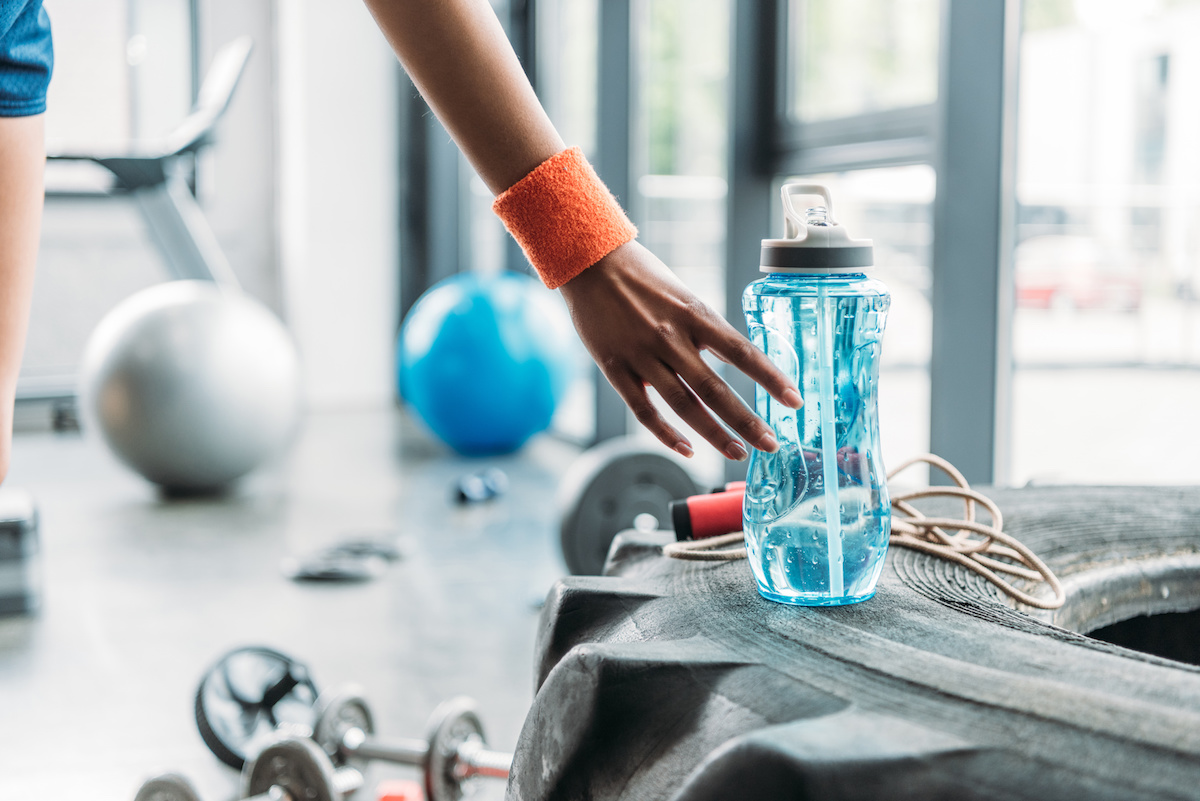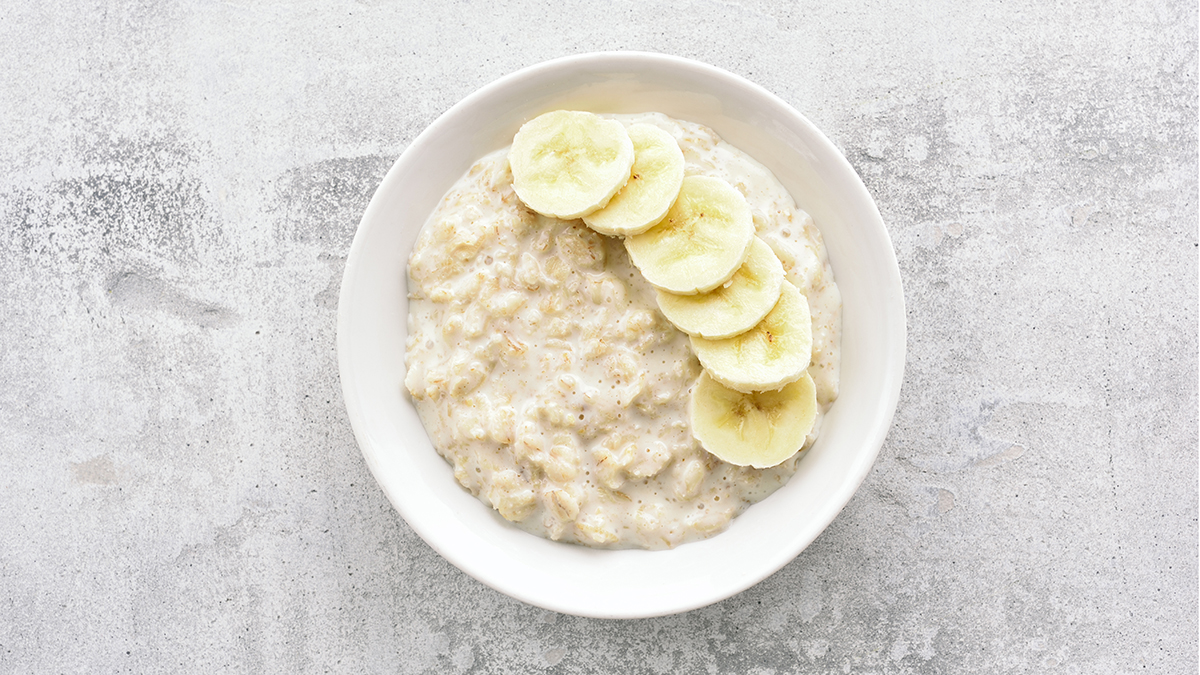Here’s Why You Should Always Drink While You’re Working Out

Just as we pay extreme attention to how we fuel our bodies with food before and after exercise, its important not to overlook the way we hydrate our bodies through the day.
You’ll probably know that around 60 percent of our bodies are made up of water and that its recommended we drink at least eight glasses of water a day to keep our bodies working the way they should. But in actuality, we need more fluid than that. The National Academies of Sciences, Engineering, and Medicine determines that an adequate daily fluid intake is about 15.5 cups (3.7 litres) of fluids for men and 11.5 cups (2.7 litres) of fluids a day for women
While we might get about 20 percent of our daily fluid intake from the food we eat, the average person in the UK still only drinks 1.7 litres per day which is well below any of the recommendations.
And this general dehydrated state is having an affect on our performance in the gym. A seminal 1985 study found that a dehydrated athlete with 2.5 percent loss of body weight in the form of water can experience up to a 45 percent loss in their capacity to perform high-intensity exercise. Below we highlight a few of the reasons as to why that capacity is so effected.
The Importance Of Sweat
Sweating is a good indicator that you have the requisite fluid in your body for it to perform at its best. It occurs when the body heats up to convert glucose into muscle energy and is released through our glands. It is then evaporated into the air, cooling down your skin in the process and your body.
This process helps keep your body temperature between 36.6 and 39.4 degrees celsius, no matter how intense your workout. Performance starts to suffer above this temperature, to the point where heat exhaustion becomes a real issue.
Sweat is the main way we lose fluid during exercise. It can be useful to know our sweat rate then and tailor our fluid intake to these needs. You can do this by checking your weight before and after training. The difference in the weight indicates how well you are staying hydrated, with the difference plus any fluids consumed during your workout equaling the sweat rate.

An average person sweats between 0.8 to 1.4 litres per hour during exercise. One of the highest sweat rates ever recorded was marathon runner Alberto Salazar at the 1984 Olympics. Salazar was running at 85 percent of VO2 max (maximal oxygen uptake, an effective measurement of ones aerobic fitness) and had a body weight loss of 5.43 kg (around 8 percent of his body weight) despite an estimated fluid ingestion of 1.88 litres.
This weight loss was equivalent to a sweat rate of 3.7 litres per hour, which is nearly four times more than the average person would expect to sweat.
Blood Volume Reduction
Blood flow also plays an important part in regulating our body heat during exercise. Our blood vessels will either widen to allow more blood to flow through the skin and thus more heat to be lost to the environment, or constrict to keep the heat within.
When you become dehydrated you will see also see a significant reduction in your total blood volume (TBV), mostly due to your blood plasma which makes up around 60 percent of our TBV, and is mostly water.
Blood circulates from the heart, through the body and back to the heart through the lungs. When your blood volume decreases, performance of these key bodily functions diminishes too. Blood also delivers oxygen and nutrients to the working muscles for energy. The harder you are working out, the more oxygen and nutrients the body demands. It’s important then to keep your blood volume levels up, and in turn your consumption of replenishing fluids.
Topping Up Your Glycogen Stores
If you know anything about the role of carbohydrates in exercise, then you’ll understand the importance of your glycogen stores on performance.
When we eat carbohydrates, these nutrients are converted to glycogen and stored in your muscles and liver to provide energy when you need it. But, to store each gram of glycogen, the body also has to store around two grams of water. When you’re trying to lose weight, diets like carb restriction diets like carb cycling will often result in early success as your body burns through your glycogen stores without replenishing them, and all while losing a significant amount of water weight while you’re at it.
For performance, a degree of water weight is usually a good sign though. It suggests that your glycogen stores are full and ready to push you through a tough session.

Keeping Your Joints In Order
Adequate fluids also keep the joints lubricated. In a state of active, healthy hydration, the pads of our joints are soft, supple, and pain free. When dehydration takes place, our joints alter in texture and this can lead to discomfort, which can diminish our athletic performance.
Loss Of Concentration
Having focused on the physical effects, it’s important not to disregard the mental. Focus is important when working out, ensuring you keep your form tight through the plane of the movement. You don’t really want to switch off during a hefty bench press.
Dehydration can lead to a shocking loss of concentration though, almost akin to being drunk. Take a 2015 study from Loughborough University that found that drivers who had drank just 25ml of water an hour made double the number of errors compared to those who were properly hydrated. Shockingly, this number was roughly the same as someone who has consumed the legal limit of alcohol.


















